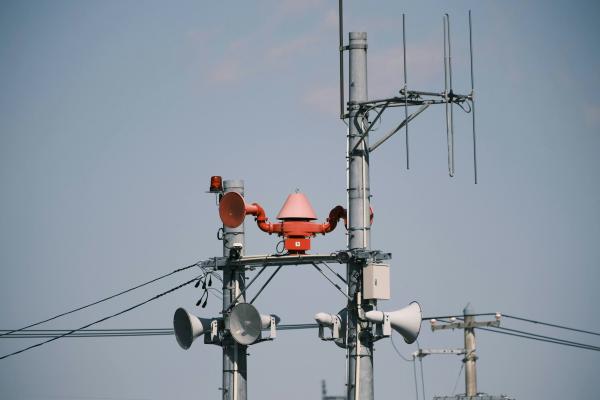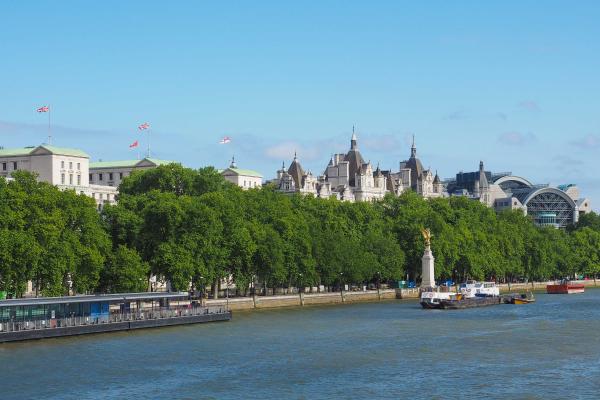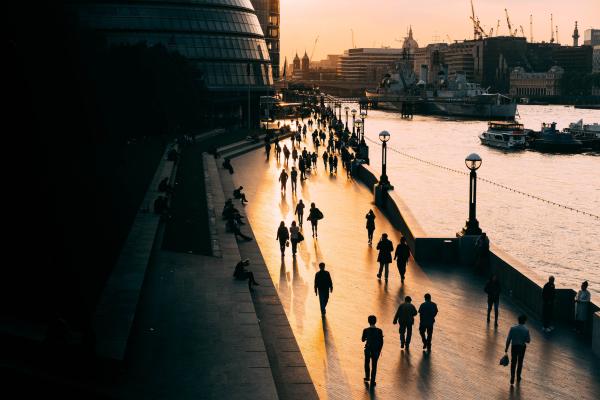The Covid-19 pandemic has presented a unique opportunity to update and adapt many traditional approaches to help deal with both old and new challenges. It is important not to allow the opportunity to be lost as we are consumed by daily issues. Rather, we should be ambitious in efforts to achieve sustainability and resilience for the long term.
The recently published government paper Global Britain in a competitive age: The Integrated Review of Security, Defence, Development and Foreign Policy is a document which is high on ambition. The fulfilment of its statements will be another matter but there is clearly a determination to move swiftly to show results.
One of the statements, reflected in two lines of the document but deserving further attention, concerns the notion of a ‘civilian reservist cadre for support in times of crisis’. (Section 4, page 88.) This idea comes on the back of the preceding statement on the role of the armed forces and the ‘plan on making greater use of the military reserves in supporting domestic national security priorities’.
The Imperative
There is precedence here for military reservists or volunteers. There was the Home Guard in the Second World War and the Territorials in more recent times. In between, there has been the Civil Defence Corps (1949 to 1968, with 330,000 enrolled at its height) and the Royal Observer Corps (which manned the UK Warning and Monitoring Organisation until its demise in 1992). The 100-strong Engineer and Logistic Staff Corps is currently part of the British Army Reserve; it played an important role in setting up the Nightingale Hospitals.
The idea of a civilian cadre presents a new opportunity. It is to think beyond the demands of the military, which may understandably be stretched in any major crisis and urgently in need of extra manpower, and to consider a more holistic approach to mustering a wider population of volunteers.
There is no shortage of volunteers who can be expected to respond to a national emergency. We have witnessed the response to the call from the NHS in the pandemic – 750,000 offered their services although many were under-utilised. Outside the pandemic, there is a regular, spontaneous volunteering effort through, for example, special constables, first-aiders, youth and charity workers, flood wardens, etc.
This is a large, disparate collection of people who are keen to help others, know their local areas, are skilled in their specialisms, and often have experience of dealing with emergencies. What has been lacking so far is a national, co-ordinated system to maintain a register of contacts, to organise people when called out, to facilitate and integrate their training, to have their efforts recognised, and to incentivise them to remain on call.
Business can be a key player here. Many businesses already allow staff to devote a few days of paid time to volunteer for a worthwhile cause. Business is often willing to do more in an emergency, for example, donate bottled water, provide mobile phones, offer spare hotel rooms, hand-out blankets or supply meals, etc. Again, the impact could be much more significant if such actions were pre-planned, co-ordinated effort led by government. This is not to decry the sterling work already performed in some of these areas by organisations like the Red Cross but with others involved there would a force-multiplier effect.
Then there is the younger generation to consider. A National Citizen Service for 15 to 17-year-olds was one of the initiatives from the concept of a Big Society in 2011. By the end of 2017, 300,000 teenagers had participated at a cost to the tax payer of around £1,500 per participant. More recently, the impetus here may have dissipated. Yet, if we are to advance the ‘whole-of society approach to resilience’ advocated by the Integrated Review (Page 88), it will be important to engage teenagers into a co-ordinated, national approach. This should be a non-military engagement but even with only a few weeks training it could address topics such as personal and community resilience, first aid and emergency assistance, crisis preparedness, physical training and self-defence, leadership and team building, situational awareness, on-line security, etc. Again, some of these skills are provided through the Scout Association, the Duke of Edinburgh’s Award Scheme, etc, but there has been little effort so far at providing more general coverage through wide-scale, school and college engagement.
Other countries have grasped some of these opportunities. A number of Scandinavian and Baltic countries have a national service model for youngsters, total defence plans and joint civil and military colleges with regular training, Admittedly, the threat perception in these countries is different to that of the UK. This notwithstanding, France has a residential civic service for 15 to 16-year-olds which is expected to become mandatory in the future. Italy’s Servizio civile universale (universal civil service) allows young people to volunteer for training and service both in emergency preparedness and response and also in protecting Italy’s cultural heritage. Germany’s Technisches Hilfswerk (THW) is a government disaster-relief agency, primarily operating as a volunteer organisation.
The Benefits
Covid-19 has presented a threat on a par with a war, albeit without any physical destruction. This unifying but deadly challenge gives us the chance to re-examine our old approaches to civil protection while adapting them for modern times. The benefits of finding a nationwide solution fit for the future are immense: there is the opportunity to strengthen social cohesion and patriotism; improve the resilience and preparedness of a large part of the population; engender wider community support; provide for a surge capacity in emergencies beyond the military and police; and, most importantly, to provide team-building and emotional resilience to young people.
All of this naturally comes with a cost. Yet, this will be relatively small in the face of the cost of the pandemic and any future pandemic or (inter)national emergency. The Integrated Review has opened the window to a potentially new way of working. The response needs to be bold and ambitious. It requires the creation of a Civil Protection Force, a National Resilience Force or Corps of Citizens – the name, to be decided, simply reflects the scope and scale of the entity. But to be effective, it needs national planning, co-ordination and resourcing. This is an opportunity worth grasping in these challenging times.
See also Resilience First News items: The UK’s Integrated Review, Volunteering makes for resilient communities.



